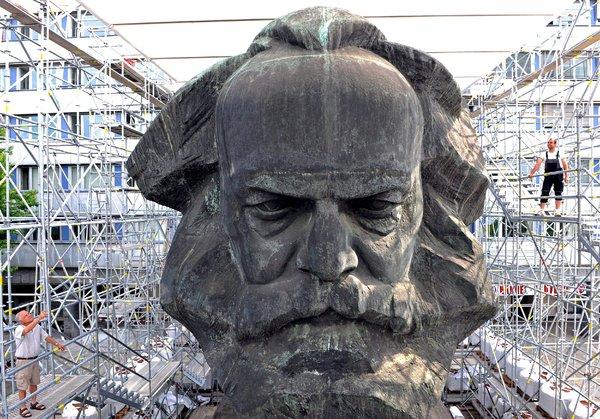
In the Boston Review, Bruce Robbins reviews two new books that wrestle with the question of how Marx’s work can be made relevant in an era substantially different from the one that shaped his writings: Reading Marx by Slavoj Žižek, Frank Ruda, and Agon Hamza, and Old Gods, New Enigmas: Marx’s Lost Theory by Mike Davis. The former aims to reframe Marx as a kind of perennial philosopher, while the latter applies Marx’s comments on the nineteenth-century peasantry to today’s de-industrialized workforce. According to Robbins, these efforts yield mixed results, which should force us to face the possibility that “Marxism may itself be historically relative.” Here’s an excerpt from the review:
I did not read Hegel’s Phenomenology in college, but looking back, that book makes sense of my choice of history over philosophy. Like Hegel, I resisted the assumption that people lived in a cave-like darkness. This did not suggest naïve belief in a progress that was somehow guaranteed. It meant only that progressive change was possible because progressive change had already happened. Enlightenment and emancipation were not otherworldly ideals; they were part of the historical record. Yes, there were the enclosures, of course, but there was also the victory of Cromwell’s New Model Army in the 1640s and the execution of the king.
Marx found the forces unleashed by the bourgeoisie inspiring, and he was not wrong to be inspired. The capitalist state set up commissions of inquiry into factory conditions, the commissions of inquiry wrote up Blue Books of their findings, and the Blue Books enabled Marx to write Capital. There is no critique of the status quo that does not shine from within the status quo. Capitalism’s present is not a cave. It glimmers with various possible futures.
Image via NY Times.